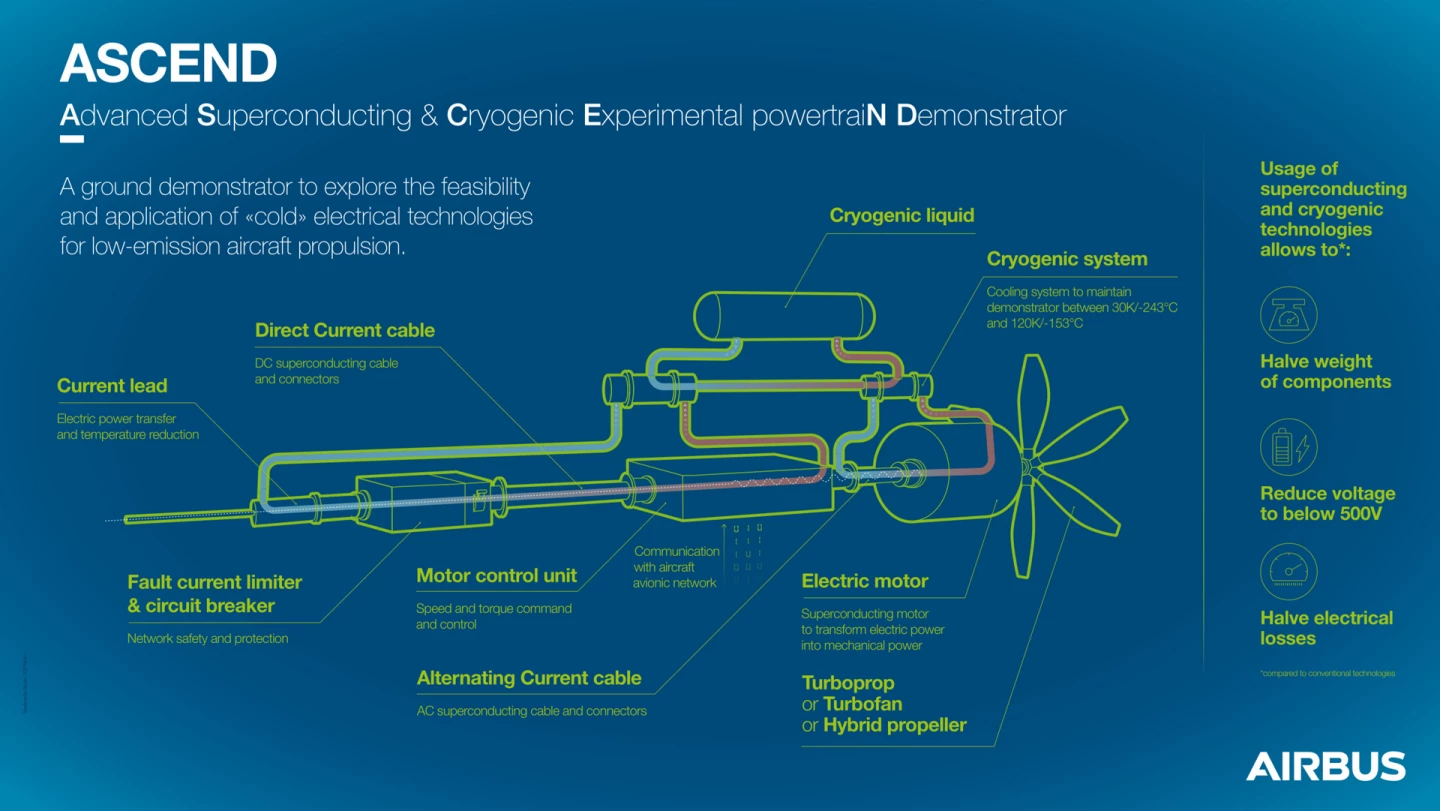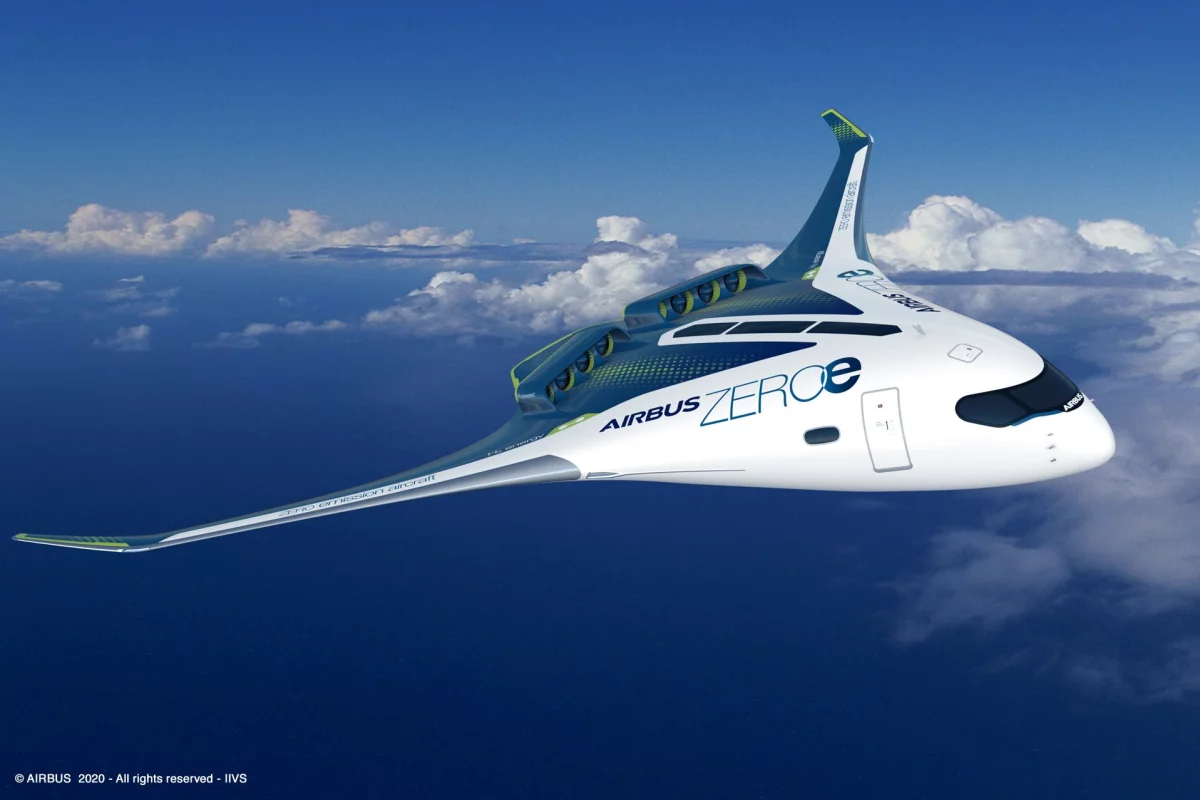Long-haul aviation, like everything else in the human world, needs to be totally decarbonized, and in the race to zero emissions for international airliners, liquid-hydrogen powertrains look like one of the only viable possibilities.
Liquid H2's key drawcard to aircraft designers is its impressive energy density by weight, but Airbus believes there are serious opportunities to be explored in another of its properties: temperature. To keep it liquid, it needs to be stored cryogenically at -253.15 °C (-423.7 °F), and Airbus figures that if you've got a monster cold source like that on board your aircraft, you might as well make use of it.
The theory is that the liquid hydrogen can supercool the entire electric powertrain down to superconducting temperatures, at which point resistance virtually disappears from the system, and efficiency skyrockets. A powertrain designed to take full advantage of this effect, reasons Airbus, could get the same job done at less than half the weight, half the electrical losses and reduced voltages.
So it's building one. The Ascend system will be a ground-based proof of concept developed over the next three years. It'll be a 500-kW (670-hp) powertrain, with cables, controllers, electronics and motors that are cryogenically cooled by liquid hydrogen pumped around in a circuit from the fuel tanks.

If the concept works as expected, the result could draw significantly more punch out of Airbus's future liquid hydrogen airliners while radically reducing powertrain weight, and the Ascend initiative could play a key part in getting hydrogen planes up to range parity with conventional airliners – and beyond.
It's certainly an interesting spin on hydrogen power we haven't heard about before – and while Airbus's exploration will be specifically around its use in long-haul electric aviation, it does make us wonder if there are any other applications that could benefit from a little superconductivity as well. Neat stuff. Check out a video below.
Source: Airbus





